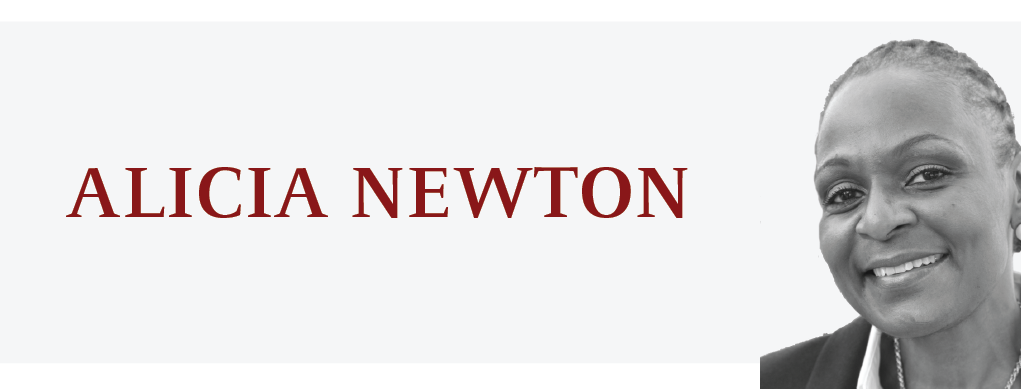 Not too long ago in the South, where I live, and in much of the rest of the nation, a voter didn’t need to worry about carrying identification to the polls on Election Day.
Not too long ago in the South, where I live, and in much of the rest of the nation, a voter didn’t need to worry about carrying identification to the polls on Election Day.
My, how things have changed. Today, voter ID laws have spread across the nation like kudzu, from Alabama to Alaska.
But coming from Georgia (a state with something of a record of disenfranchising her people) I have to ask: Is voter ID needed to prevent voter fraud or are these laws a way to suppress the vote?
There are reasons to suspect the latter. Did you know that many voter ID laws include a provision for free ID issuance. I discovered that Georgia provides for this. So last week, I went to the state’s Department of Driver Services (DDS) to ask for a free state issued ID just to test the system.
There was no free ID choice on the list of documents one could obtain and the clerk had no idea what I was talking about. I was given a voter registration form and was told if I fill that out, that maybe I could obtain a free ID that way.
Let’s just assume one could unravel the free, versus $20 cost of a voter ID card (the website of the state’s Department of Driver Services does say that, if qualified such a document does exist). What else does one need to obtain this ID? Let’s start with the first acceptable document listed, a birth certificate. In the state of Georgia, a birth certificate cost $25.00. Hospital birth certificates are not acceptable; it must be certified or original. I’m already confused. I mistakenly thought the hospital birth certificate was original. Now $25.00 might not be much for some, but for many students and low-income folks this is equivalent to a poll tax.
So, forgive me, but I’m not seeing how anything here is free.
That, of course, hasn’t slowed the states in the mad dash toward voter ID.
Amid allegations of voter fraud, 34 states considered photo voter ID legislation in 2011. Eight states enacted new laws, and five governors vetoed photo ID.
Organizations such as The Advancement Project, ACLU and the National Council of Jewish Women (NCJW) report such laws systematically disenfranchise low-income, elderly, disabled and student voters. The Brennan Center for Justice at New York University School of Law, reports more than five million Americans could be affected by the new rules already put in place this year.
Organizations such as True The Vote dismiss these reports. This group argues that voter fraud is rampant and we need these new laws to protect fair free elections. True The Vote began during the 2008 election cycle of the Harris County, Texas Tea Party organization. Last year New Hampshire’s speaker of the state House Bill O'Brien was videotaped addressing a Tea Party Group saying students lack "life experience" and "just vote their feelings." He said “they're "foolish, voting as a liberal. That's what kids do….”
Alas, all those youthful ideals! The end of Democracy is certainly here! All those damn kids voting. What happened to nonpartisan agreement and support of, we don’t care how you vote, just vote?
Exactly what problem does voter ID fix? Let’s be clear, the only type of voter fraud voter ID laws would fix is fraud occurring at the poll itself, someone pretending to be someone else.
So how often does that happen?
In a briefing filed with the U.S. Supreme Court in the Crawford v. Marion County Election Board case, the state of Indiana failed to justify Indiana’s photo ID law. Out of almost 400 million votes cast in general elections alone since 2000, the briefs cite one attempt at impersonation that was thwarted without a photo ID requirement. The Brennan Center for Justice, reported, it is more likely that an individual will be struck by lightning than that he will impersonate another voter at the polls.
So what impact do all these restrictive voter ID laws have on voters?
The National Urban League named voting as the top issue for African Americans. Under these new laws 25 percent do not have valid Voter ID .
The William C. Velasquez Institute reported "A significant decline in national Latino voter registration in 2010 which may diminish the size of Latino voter turnout in November 2012 by more than a million votes.
According to the myriad of lawsuits being filed, low-income constituents are adversely impacted. In April 2012, a national voting rights groups secured a landmark settlement with the state of Georgia to ensure that voter registration is offered to all public assistance applicants. And in May 2012 a Federal Judge in Louisiana rules the state must at least offer voter registration to public assistance clients.
Members of the American Association of People with Disabilities visited the Tennessee state capitol in January to complain that the state’s new voter identification law is unfair to the disabled because many disabled people do not drive, they are less likely to have a photo ID, and they would find it especially difficult to go to a driver license center to get a state-issued government ID.
Who are the people whose votes are suppressed with these new voter ID laws? The poor, people of color, the elderly, people with disabilities, and let’s not forget those foolish students who lack life experience and vote their feelings.
